Frequent persons on Lithuania's street signs
countries
132 names / 1984 streets
Vytautas
 201
Vytautas, also known as Vytautas the Great from the late 14th century onwards, was a ruler of the Grand Duchy of Lithuania. He was also the prince of Grodno (1370–1382), prince of Lutsk (1387–1389),...
201
Vytautas, also known as Vytautas the Great from the late 14th century onwards, was a ruler of the Grand Duchy of Lithuania. He was also the prince of Grodno (1370–1382), prince of Lutsk (1387–1389),...
Steponas Darius
 114
Steponas Darius was a Lithuanian American pilot, who died in a non-stop flight attempt in the Lituanica from New York City to Kaunas, Lithuania, in 1933.
114
Steponas Darius was a Lithuanian American pilot, who died in a non-stop flight attempt in the Lituanica from New York City to Kaunas, Lithuania, in 1933.
Jonas Žemaitis
 105
Jonas Žemaitis, also known under his nom de guerre Vytautas was a Lithuanian general and freedom fighter who served as the de facto president of Lithuania from 1949 until his death in 1954. A...
105
Jonas Žemaitis, also known under his nom de guerre Vytautas was a Lithuanian general and freedom fighter who served as the de facto president of Lithuania from 1949 until his death in 1954. A...
Vincas Mykolaitis-Putinas
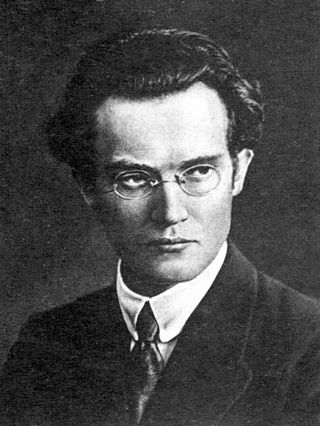 97
Vincas Mykolaitis, known by his pen name Putinas ; 6 January 1893 – 7 June 1967), was a Lithuanian writer, poet and translator, accorded the honour of being a People's Writer of the Lithuanian SSR in...
97
Vincas Mykolaitis, known by his pen name Putinas ; 6 January 1893 – 7 June 1967), was a Lithuanian writer, poet and translator, accorded the honour of being a People's Writer of the Lithuanian SSR in...
Žemaitė
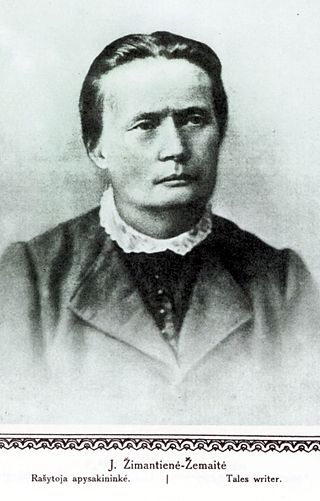 96
Žemaitė was the pen name of Julija Beniuševičiūtė-Žymantienė. She was a Lithuanian/Samogitian writer, democrat and educator. Born to impoverished gentry, she became one of the major participants in...
96
Žemaitė was the pen name of Julija Beniuševičiūtė-Žymantienė. She was a Lithuanian/Samogitian writer, democrat and educator. Born to impoverished gentry, she became one of the major participants in...
Birutė
Kęstutis
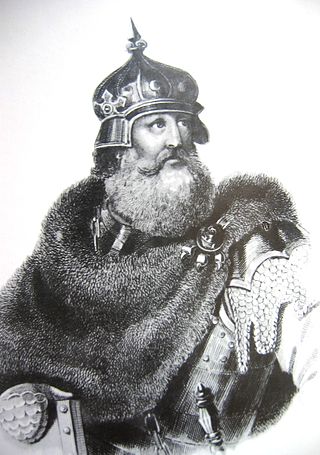 77
Kęstutis was the Grand Duke of Lithuania. He was the Duke of Trakai and governed the Grand Duchy of Lithuania, 1342–1382, together with his brother Algirdas, and with his nephew Jogaila.
77
Kęstutis was the Grand Duke of Lithuania. He was the Duke of Trakai and governed the Grand Duchy of Lithuania, 1342–1382, together with his brother Algirdas, and with his nephew Jogaila.
Jonas Basanavičius
 66
Jonas Basanavičius was an activist and proponent of the Lithuanian National Revival. He participated in every major event leading to the independent Lithuanian state and is often given the informal...
66
Jonas Basanavičius was an activist and proponent of the Lithuanian National Revival. He participated in every major event leading to the independent Lithuanian state and is often given the informal...
Salomėja Nėris
 58
Salomėja Bačinskaitė-Bučienė, mostly known by her pen name Nėris was a Lithuanian poet.
58
Salomėja Bačinskaitė-Bučienė, mostly known by her pen name Nėris was a Lithuanian poet.
Maironis
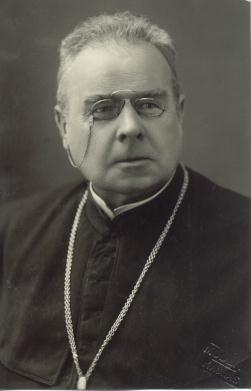 56
Maironis was a Lithuanian Roman Catholic priest and the greatest and most-known Lithuanian poet, especially of the period of the Lithuanian press ban. He was called the Bard of Lithuanian National...
56
Maironis was a Lithuanian Roman Catholic priest and the greatest and most-known Lithuanian poet, especially of the period of the Lithuanian press ban. He was called the Bard of Lithuanian National...
Vincas Kudirka
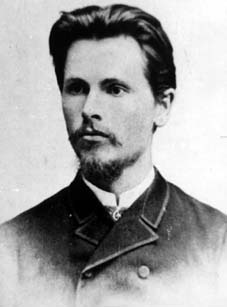 49
Vincas Kudirka was a Lithuanian poet and physician, and the author of both the music and lyrics of the Lithuanian national anthem, "Tautiška giesmė". He is regarded in Lithuania as a national hero....
49
Vincas Kudirka was a Lithuanian poet and physician, and the author of both the music and lyrics of the Lithuanian national anthem, "Tautiška giesmė". He is regarded in Lithuania as a national hero....
Petras Cvirka
 45
Petras Cvirka was a Lithuanian writer of several novels, children's books, and short story collections. He wrote under a variety of pen names: A. Cvingelis, Cezaris Petrėnas, J. K. Pavilionis, K....
45
Petras Cvirka was a Lithuanian writer of several novels, children's books, and short story collections. He wrote under a variety of pen names: A. Cvingelis, Cezaris Petrėnas, J. K. Pavilionis, K....
Jonas Biliūnas
 39
Jonas Biliūnas was a Lithuanian writer, poet, and a significant contributor to the national awakening of Lithuania in the late 19th and early 20th centuries.
39
Jonas Biliūnas was a Lithuanian writer, poet, and a significant contributor to the national awakening of Lithuania in the late 19th and early 20th centuries.
Julius Janonis
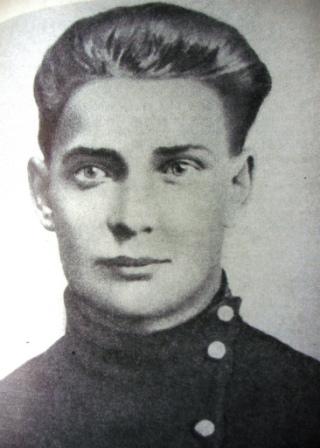 39
Julius Janonis was a Lithuanian poet and writer. Born to a family of poor peasants, he began writing and translating poems at the age of 14. Learning from Maironis, he wrote about nature and...
39
Julius Janonis was a Lithuanian poet and writer. Born to a family of poor peasants, he began writing and translating poems at the age of 14. Learning from Maironis, he wrote about nature and...
Algirdas
 37
Algirdas was Grand Duke of Lithuania from 1345 to 1377. With the help of his brother Kęstutis he created an empire stretching from the present Baltic states to the Black Sea and to within 80...
37
Algirdas was Grand Duke of Lithuania from 1345 to 1377. With the help of his brother Kęstutis he created an empire stretching from the present Baltic states to the Black Sea and to within 80...
Motiejus Valančius
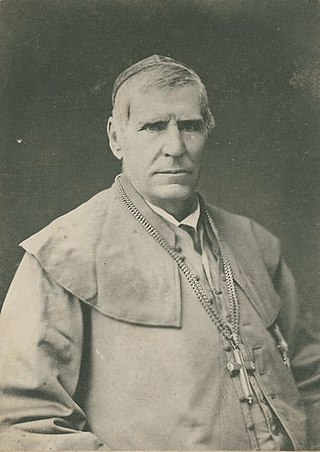 36
Motiejus Kazimieras Valančius was a Catholic Bishop of Samogitia, historian and one of the best known Lithuanian/Samogitian writers of the 19th century.
36
Motiejus Kazimieras Valančius was a Catholic Bishop of Samogitia, historian and one of the best known Lithuanian/Samogitian writers of the 19th century.
Vincas Grybas
 35
Vincas Grybas was a Lithuanian sculptor. Vincas Grybas was born in Lukšiai village, where he finished elementary school. Later he continued his studies at Warsaw art school. After World War I Grybas...
35
Vincas Grybas was a Lithuanian sculptor. Vincas Grybas was born in Lukšiai village, where he finished elementary school. Later he continued his studies at Warsaw art school. After World War I Grybas...
Simonas Daukantas
 30
Simonas Daukantas was a Lithuanian/Samogitian historian, writer, and ethnographer. One of the pioneers of the Lithuanian National Revival, he is credited as the author of the first book on the...
30
Simonas Daukantas was a Lithuanian/Samogitian historian, writer, and ethnographer. One of the pioneers of the Lithuanian National Revival, he is credited as the author of the first book on the...
Vydūnas
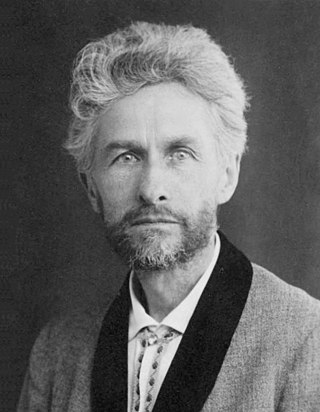 25
Wilhelm Storost, artistic name Vilius Storostas-Vydūnas, mostly known as Vydūnas, was a Prussian-Lithuanian teacher, poet, humanist, philosopher and Lithuanian
writer, a leader of the Prussian...
25
Wilhelm Storost, artistic name Vilius Storostas-Vydūnas, mostly known as Vydūnas, was a Prussian-Lithuanian teacher, poet, humanist, philosopher and Lithuanian
writer, a leader of the Prussian...
Kristijonas Donelaitis
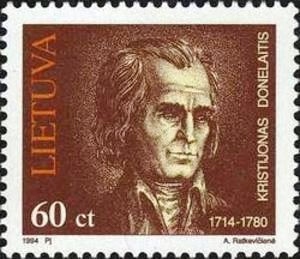 25
Kristijonas Donelaitis was a Prussian Lithuanian poet and Lutheran pastor. He lived and worked in Lithuania Minor, a territory in the Kingdom of Prussia, that had a sizable Lithuanian-speaking...
25
Kristijonas Donelaitis was a Prussian Lithuanian poet and Lutheran pastor. He lived and worked in Lithuania Minor, a territory in the Kingdom of Prussia, that had a sizable Lithuanian-speaking...
Dionizas Poška
 24
Dionizas Poška was a Lithuanian poet, historian and lexicographer sometimes described also as Polish-Lithuanian He contributed to the early 19th-century Samogitian Revival, the early stage of the...
24
Dionizas Poška was a Lithuanian poet, historian and lexicographer sometimes described also as Polish-Lithuanian He contributed to the early 19th-century Samogitian Revival, the early stage of the...
Mikalojus Konstantinas Čiurlionis
 20
Mikalojus Konstantinas Čiurlionis was a Lithuanian composer, painter, choirmaster, cultural figure, and writer in Polish.
20
Mikalojus Konstantinas Čiurlionis was a Lithuanian composer, painter, choirmaster, cultural figure, and writer in Polish.
Jonas Jablonskis
 18
Jonas Jablonskis was a distinguished Lithuanian linguist and one of the founders of the standard Lithuanian language. He used the pseudonym Rygiškių Jonas, taken from the small town named Rygiškiai...
18
Jonas Jablonskis was a distinguished Lithuanian linguist and one of the founders of the standard Lithuanian language. He used the pseudonym Rygiškių Jonas, taken from the small town named Rygiškiai...
Antanas Baranauskas
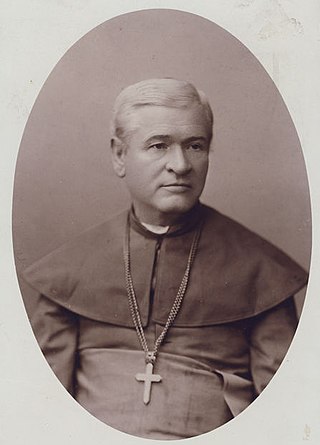 17
Antanas Baranauskas was a Lithuanian poet, mathematician and Catholic bishop of Sejny. Baranauskas is best known as the author of the Lithuanian poem Anykščių šilelis. He used various pseudonyms,...
17
Antanas Baranauskas was a Lithuanian poet, mathematician and Catholic bishop of Sejny. Baranauskas is best known as the author of the Lithuanian poem Anykščių šilelis. He used various pseudonyms,...
Liudas Gira
 17
Liudas Gira was a Lithuanian poet, writer, and literary critic. His is noted for his early poetry, which resembles traditional Lithuanian folk songs. Gira was active in cultural and political life,...
17
Liudas Gira was a Lithuanian poet, writer, and literary critic. His is noted for his early poetry, which resembles traditional Lithuanian folk songs. Gira was active in cultural and political life,...
Adam Mickiewicz
 15
Adam Bernard Mickiewicz was a Polish poet, dramatist, essayist, publicist, translator and political activist. He is regarded as national poet in Poland, Lithuania and Belarus. He also largely...
15
Adam Bernard Mickiewicz was a Polish poet, dramatist, essayist, publicist, translator and political activist. He is regarded as national poet in Poland, Lithuania and Belarus. He also largely...
Martynas Mažvydas
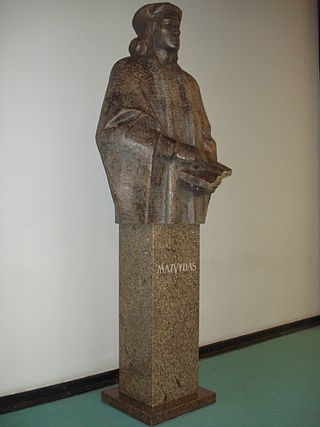 15
Martynas Mažvydas was a Protestant author who edited the first printed book in the Lithuanian language.
15
Martynas Mažvydas was a Protestant author who edited the first printed book in the Lithuanian language.
Antanas Giedraitis-Giedrius
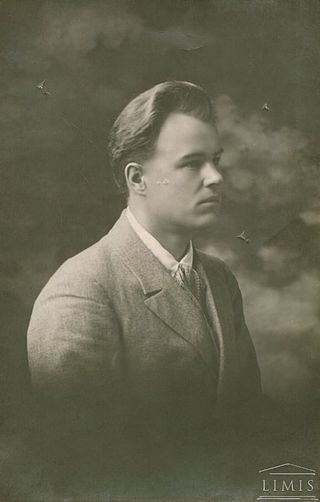 15
Antanas Giedraitis-Giedrius – Lietuvos pedagogas, rašytojas.
15
Antanas Giedraitis-Giedrius – Lietuvos pedagogas, rašytojas.
Juozas Tumas-Vaižgantas
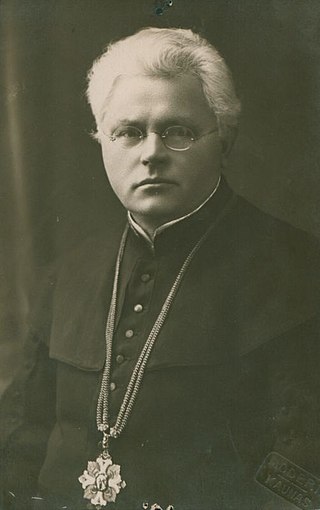 14
Juozas Tumas also known by the pen name Vaižgantas was a Lithuanian Roman Catholic priest and an activist during the Lithuanian National Revival. He was a prolific writer, editor of nine periodicals,...
14
Juozas Tumas also known by the pen name Vaižgantas was a Lithuanian Roman Catholic priest and an activist during the Lithuanian National Revival. He was a prolific writer, editor of nine periodicals,...
Iron Wolf (character)
 12
The Iron Wolf is a mythical character from a medieval legend of the founding of Vilnius, the capital city of the old Grand Duchy of Lithuania and modern Republic of Lithuania. First found in the...
12
The Iron Wolf is a mythical character from a medieval legend of the founding of Vilnius, the capital city of the old Grand Duchy of Lithuania and modern Republic of Lithuania. First found in the...
Czesław Miłosz
 11
Czesław Miłosz was a Polish-American poet, prose writer, translator, and diplomat. He primarily wrote his poetry in Polish. Regarded as one of the great poets of the 20th century, he won the 1980...
11
Czesław Miłosz was a Polish-American poet, prose writer, translator, and diplomat. He primarily wrote his poetry in Polish. Regarded as one of the great poets of the 20th century, he won the 1980...
Juozas Lukša
 11
Juozas Lukša, also known among other pseudonyms as Daumantas and Skirmantas, was a leader of the anti-Soviet Lithuanian partisan armed resistance movement.
11
Juozas Lukša, also known among other pseudonyms as Daumantas and Skirmantas, was a leader of the anti-Soviet Lithuanian partisan armed resistance movement.
Pranas Vaičaitis
 10
Pranas Vaičaitis was a Lithuanian poet. After graduation from the Marijampolė Gymnasium, he studied law at the Saint Petersburg University. Due to the violations of the Lithuanian press ban, he was...
10
Pranas Vaičaitis was a Lithuanian poet. After graduation from the Marijampolė Gymnasium, he studied law at the Saint Petersburg University. Due to the violations of the Lithuanian press ban, he was...
Vincas Krėvė-Mickevičius
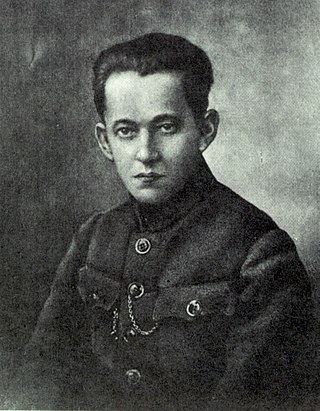 9
Vincas Mickevičius, better known by his pen name Vincas Krėvė-Mickevičius, was a Lithuanian writer, poet, novelist, playwright and philologist. He is also known as Vincas Krėvė, the shortened name he...
9
Vincas Mickevičius, better known by his pen name Vincas Krėvė-Mickevičius, was a Lithuanian writer, poet, novelist, playwright and philologist. He is also known as Vincas Krėvė, the shortened name he...
Mikalojus Daukša
 9
Mikalojus Daukša was a Lithuanian and Latin religious writer, translator and a Catholic church official. He is best known as the first among Lithuania's humanists to underline the need to codify and...
9
Mikalojus Daukša was a Lithuanian and Latin religious writer, translator and a Catholic church official. He is best known as the first among Lithuania's humanists to underline the need to codify and...
Antanas Smetona
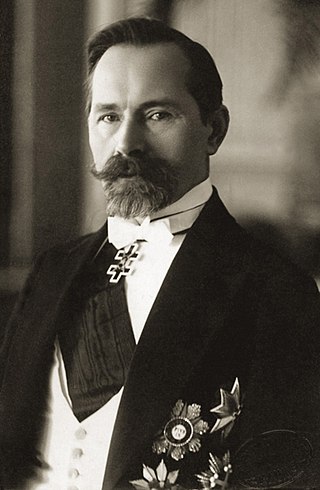 9
Antanas Smetona was a Lithuanian intellectual, journalist and politician who served as the first president of Lithuania from 1919 to 1920 and again from 1926 until the Soviet occupation of Lithuania...
9
Antanas Smetona was a Lithuanian intellectual, journalist and politician who served as the first president of Lithuania from 1919 to 1920 and again from 1926 until the Soviet occupation of Lithuania...
Antanas Strazdas
 9
Antanas Strazdas was a Lithuanian priest and poet. Because of his humble origins and lifestyle, he became somewhat of a folklore hero.
9
Antanas Strazdas was a Lithuanian priest and poet. Because of his humble origins and lifestyle, he became somewhat of a folklore hero.
Povilas Plechavičius
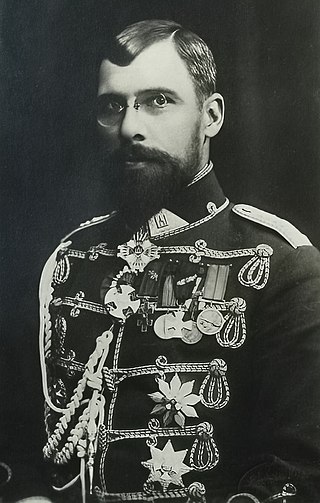 9
Povilas Plechavičius was a Lithuanian military officer and statesman. His military career began in the Imperial Russian Army as a yunker during World War I. Then, Plechavičius climbed the ranks of...
9
Povilas Plechavičius was a Lithuanian military officer and statesman. His military career began in the Imperial Russian Army as a yunker during World War I. Then, Plechavičius climbed the ranks of...
Lazdynų Pelėda
 9
Lazdynų Pelėda was the common pen name of two Lithuanian sisters writers: Sofija Ivanauskaitė-Pšibiliauskienė (1867–1926) and Marija Ivanauskaitė-Lastauskienė (1872–1957), who were individually...
9
Lazdynų Pelėda was the common pen name of two Lithuanian sisters writers: Sofija Ivanauskaitė-Pšibiliauskienė (1867–1926) and Marija Ivanauskaitė-Lastauskienė (1872–1957), who were individually...
Szymon Konarski
 9
Szymon Konarski (1808–1839) was a 19th-century Polish-Lithuanian radical democratic politician and revolutionary, one of the leaders of the November Uprising of 1831. As a politician, he supported...
9
Szymon Konarski (1808–1839) was a 19th-century Polish-Lithuanian radical democratic politician and revolutionary, one of the leaders of the November Uprising of 1831. As a politician, he supported...
Tadeusz Dowgird
 9
Tadeusz Dowgird was a Lithuanian painter and archaeologist, nobleman of the Łabędź coat of arms.
9
Tadeusz Dowgird was a Lithuanian painter and archaeologist, nobleman of the Łabędź coat of arms.
Antanas Vienuolis
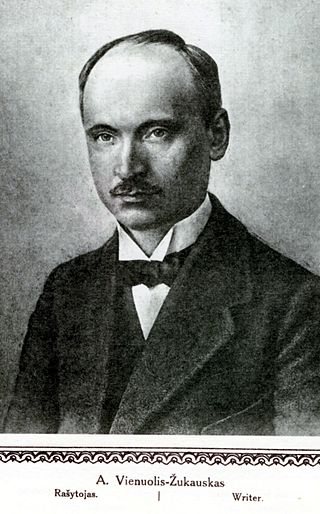 8
Antanas Vienuolis was a Soviet and Lithuanian writer, dramatist and one of the most famous realistic prosaists.
8
Antanas Vienuolis was a Soviet and Lithuanian writer, dramatist and one of the most famous realistic prosaists.
Balys Sruoga
 8
Balys Sruoga was a Lithuanian poet, playwright, critic, and literary theorist.
8
Balys Sruoga was a Lithuanian poet, playwright, critic, and literary theorist.
Władysław Syrokomla
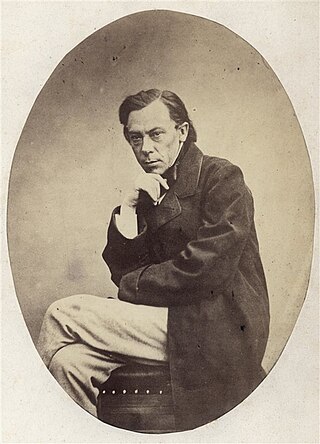 8
Ludwik Władysław Franciszek Kondratowicz, better known as Władysław Syrokomla, was a Polish romantic poet, writer and translator working in Vilnius and Vilna Governorate, then Russian Empire, whose...
8
Ludwik Władysław Franciszek Kondratowicz, better known as Władysław Syrokomla, was a Polish romantic poet, writer and translator working in Vilnius and Vilna Governorate, then Russian Empire, whose...
Pope John Paul II
 8
Pope John Paul II was head of the Catholic Church and sovereign of the Vatican City State from 1978 until his death in 2005.
8
Pope John Paul II was head of the Catholic Church and sovereign of the Vatican City State from 1978 until his death in 2005.
Antanas Juozapavičius
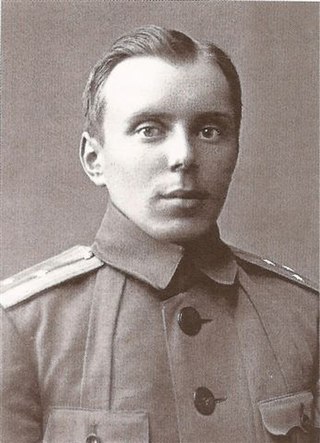 7
Antanas Juozapavičius was the first officer of the Army of the Republic of Lithuania to die while fighting in the Lithuanian Wars of Independence.
7
Antanas Juozapavičius was the first officer of the Army of the Republic of Lithuania to die while fighting in the Lithuanian Wars of Independence.
Paulius Širvys
 7
Paulius Širvys was a Lithuanian poet.
7
Paulius Širvys was a Lithuanian poet.
Jurgis Pabrėža
 7
Father Jurgis Ambrozijus (Ambraziejus) Pabrėža was a Lithuanian Franciscan priest, botanist, and educator. He created first systematic guide of Lithuanian flora Taislius auguminis (Botany), written...
7
Father Jurgis Ambrozijus (Ambraziejus) Pabrėža was a Lithuanian Franciscan priest, botanist, and educator. He created first systematic guide of Lithuanian flora Taislius auguminis (Botany), written...
Ieva Simonaitytė
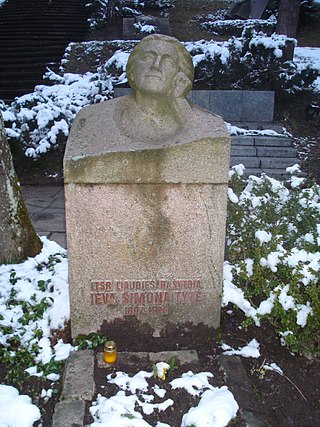 7
Ieva Simonaitytė or Ewa Simoneit was a Lithuanian writer. She represented the culture of Lithuania Minor and Klaipėda Region, territories of German East Prussia with historically large, but...
7
Ieva Simonaitytė or Ewa Simoneit was a Lithuanian writer. She represented the culture of Lithuania Minor and Klaipėda Region, territories of German East Prussia with historically large, but...
Martynas Jankus
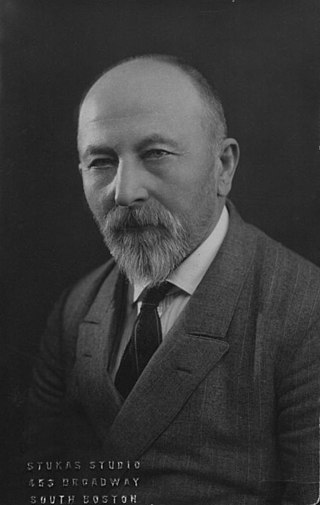 7
Martynas Jankus or Martin Jankus was a Prussian-Lithuanian printer, social activist and publisher in East Prussia, called the Patriarch of Lithuania Minor. He was one of the publishers of Aušra, the...
7
Martynas Jankus or Martin Jankus was a Prussian-Lithuanian printer, social activist and publisher in East Prussia, called the Patriarch of Lithuania Minor. He was one of the publishers of Aušra, the...
Tadeusz Kościuszko
 6
Andrzej Tadeusz Bonawentura Kościuszko was a Polish military engineer, statesman, and military leader who then became a national hero in Poland, the United States, and Belarus. He fought in the...
6
Andrzej Tadeusz Bonawentura Kościuszko was a Polish military engineer, statesman, and military leader who then became a national hero in Poland, the United States, and Belarus. He fought in the...
Butkų Juzė
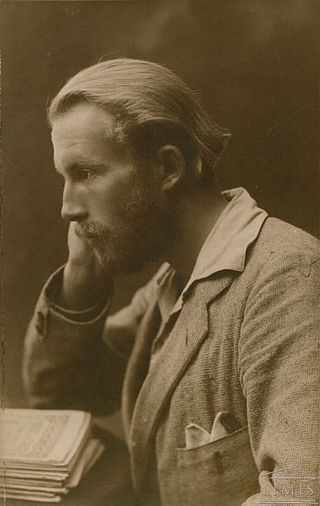 6
Butkų Juzė was the pen name of Juozas Butkus, a Lithuanian educator, poet, playwright and journalist. He worked for numerous newspapers from 1910 onwards, including Aušrinė, Žemaitis, Lietuvos...
6
Butkų Juzė was the pen name of Juozas Butkus, a Lithuanian educator, poet, playwright and journalist. He worked for numerous newspapers from 1910 onwards, including Aušrinė, Žemaitis, Lietuvos...
Šatrijos Ragana
 6
Šatrijos Ragana was the pen name of Marija Pečkauskaitė, a Lithuanian humanist and romantic writer and educator. Her most successful works are Sename dvare and Irkos tragedija.
6
Šatrijos Ragana was the pen name of Marija Pečkauskaitė, a Lithuanian humanist and romantic writer and educator. Her most successful works are Sename dvare and Irkos tragedija.
Kazimieras Būga
 6
Kazimieras Būga was a Lithuanian linguist and philologist. He was a professor of linguistics, who mainly worked on the Lithuanian language.
6
Kazimieras Būga was a Lithuanian linguist and philologist. He was a professor of linguistics, who mainly worked on the Lithuanian language.
Pranas Mašiotas
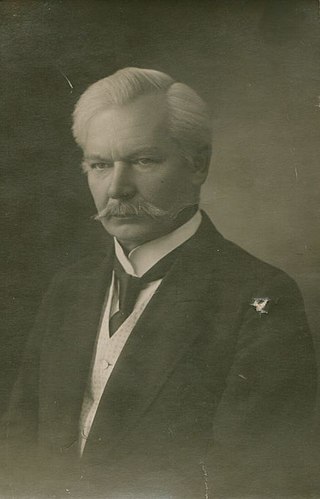 6
Pranas Mašiotas (1863–1940) was a Lithuanian activist and educator best known as children's writer and translator.
6
Pranas Mašiotas (1863–1940) was a Lithuanian activist and educator best known as children's writer and translator.
Juozas Zikaras
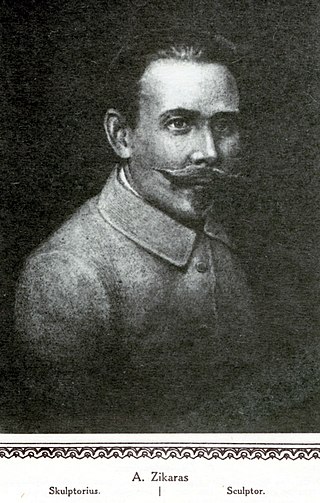 6
Juozas Zikaras was a Lithuanian sculptor and artist, who created the design for pre-war Lithuanian litas coins. He is considered to be one of the first professional Lithuanian sculptors.
6
Juozas Zikaras was a Lithuanian sculptor and artist, who created the design for pre-war Lithuanian litas coins. He is considered to be one of the first professional Lithuanian sculptors.
Tyszkiewicz family
 6
The House of Tyszkiewicz was a wealthy and influential Polish-Lithuanian magnate family of Ruthenian origin, with roots traced to the times of the Grand Duchy of Lithuania. They held the Polish coat...
6
The House of Tyszkiewicz was a wealthy and influential Polish-Lithuanian magnate family of Ruthenian origin, with roots traced to the times of the Grand Duchy of Lithuania. They held the Polish coat...
Adolfas Šapoka
 6
Adolfas Šapoka was a prominent Lithuanian medieval historian. He attended lectures at both Prague University and Stockholm University before becoming a prominent lecturer himself at the Vytautas...
6
Adolfas Šapoka was a prominent Lithuanian medieval historian. He attended lectures at both Prague University and Stockholm University before becoming a prominent lecturer himself at the Vytautas...
Vytautas Montvila (composer)
 6
Vytautas Montvila was a Lithuanian composer, bassoonist and sound engineer.
6
Vytautas Montvila was a Lithuanian composer, bassoonist and sound engineer.
Michał Kleofas Ogiński
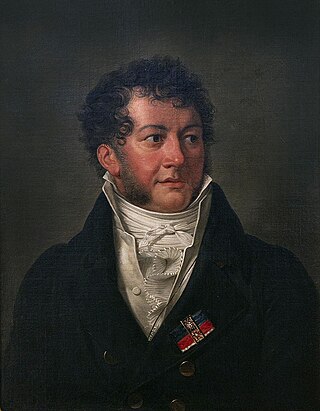 6
Michał Kleofas Ogiński was a Polish diplomat and politician, Grand Treasurer of Lithuania, and a senator of Tsar Alexander I. He was also a composer of late Classical and early Romantic music.
6
Michał Kleofas Ogiński was a Polish diplomat and politician, Grand Treasurer of Lithuania, and a senator of Tsar Alexander I. He was also a composer of late Classical and early Romantic music.
Henryk Gulbinowicz
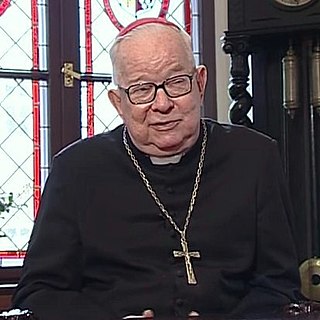 6
Henryk Roman Gulbinowicz was a prelate of the Catholic Church who served as Archbishop of Wrocław from 1976 to 2004. Pope John Paul II made him a cardinal in 1985. In 2020, he was banned from making...
6
Henryk Roman Gulbinowicz was a prelate of the Catholic Church who served as Archbishop of Wrocław from 1976 to 2004. Pope John Paul II made him a cardinal in 1985. In 2020, he was banned from making...
Gabriel Jan Mincevič
 6
Gabriel Jan Mincevič – Lietuvos ir Vilniaus rajono savivaldybės politinis bei visuomenės veikėjas, dirigentas, mokslų daktaras.
6
Gabriel Jan Mincevič – Lietuvos ir Vilniaus rajono savivaldybės politinis bei visuomenės veikėjas, dirigentas, mokslų daktaras.
Kazys Grinius
 6
Kazys Grinius was the third President of Lithuania, and held that office from 7 June 1926 to 17 December 1926. Previously, he had served as the fifth Prime Minister of Lithuania, from 19 June 1920...
6
Kazys Grinius was the third President of Lithuania, and held that office from 7 June 1926 to 17 December 1926. Previously, he had served as the fifth Prime Minister of Lithuania, from 19 June 1920...
Feliksas Vaitkus
 6
Feliksas Vaitkus (1907–1956), also known as Felix Waitkus, was an American-born Lithuanian pilot and the sixth pilot to fly solo across the Atlantic.
6
Feliksas Vaitkus (1907–1956), also known as Felix Waitkus, was an American-born Lithuanian pilot and the sixth pilot to fly solo across the Atlantic.
Juozas Gudavičius (1873)
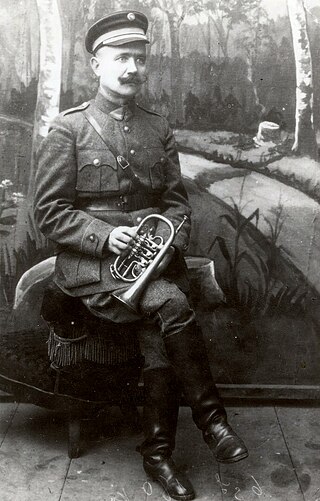 6
Juozas Gudavičius – vargonininkas, choro ir orkestro dirigentas, kompozitorius.
6
Juozas Gudavičius – vargonininkas, choro ir orkestro dirigentas, kompozitorius.
Simonas Stanevičius
 5
Simonas Tadas Stanevičius was a Lithuanian writer and an activist of the "Samogitian Revival", an early stage of the Lithuanian National Revival.
5
Simonas Tadas Stanevičius was a Lithuanian writer and an activist of the "Samogitian Revival", an early stage of the Lithuanian National Revival.
Konstanty Kalinowski
 5
Wincenty Konstanty Kalinowski, also known as Kastuś Kalinoŭski, was a writer, journalist, lawyer and revolutionary from the former Grand Duchy of Lithuania that was part of the Polish–Lithuanian...
5
Wincenty Konstanty Kalinowski, also known as Kastuś Kalinoŭski, was a writer, journalist, lawyer and revolutionary from the former Grand Duchy of Lithuania that was part of the Polish–Lithuanian...
Povilas Višinskis
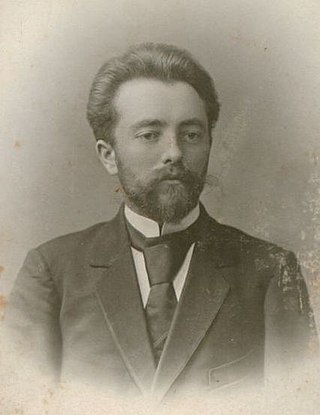 5
Povilas Višinskis was a Lithuanian cultural and political activist during the Lithuanian National Revival. He is best remembered as a mentor of literary talent. He discovered Julija Žymantienė...
5
Povilas Višinskis was a Lithuanian cultural and political activist during the Lithuanian National Revival. He is best remembered as a mentor of literary talent. He discovered Julija Žymantienė...
Aleksandras Stulginskis
 5
Aleksandras Stulginskis was the second President of Lithuania (1920–1926). Stulginskis was also acting President of Lithuania for a few hours later in 1926, following a military coup that was led by...
5
Aleksandras Stulginskis was the second President of Lithuania (1920–1926). Stulginskis was also acting President of Lithuania for a few hours later in 1926, following a military coup that was led by...
Petras Vileišis
 5
Petras Vileišis was a prominent Lithuanian engineer specializing in the construction of railroad bridges. He was very active in Lithuanian public life and together with his brothers Jonas and Antanas...
5
Petras Vileišis was a prominent Lithuanian engineer specializing in the construction of railroad bridges. He was very active in Lithuanian public life and together with his brothers Jonas and Antanas...
Laurynas Ivinskis
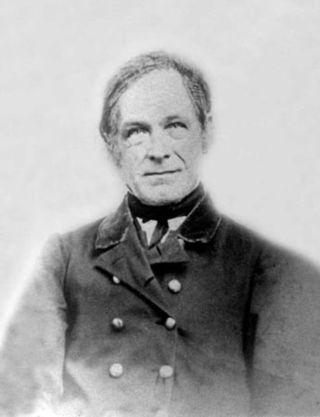 5
Laurynas Ivinskis was a Lithuanian teacher, publisher, translator and lexicographer, from a Samogitian noble family. He is notable for a series of annual calendars published between 1847 and 1877, in...
5
Laurynas Ivinskis was a Lithuanian teacher, publisher, translator and lexicographer, from a Samogitian noble family. He is notable for a series of annual calendars published between 1847 and 1877, in...
Jurgis Bielinis
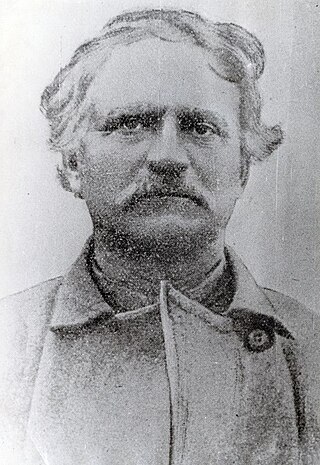 5
Jurgis Bielinis (1846–1918) was one of the main organizers of the illegal book-smuggling at the time of the Lithuanian press ban (1864–1904). Bielinis is informally referred to as the King of Book...
5
Jurgis Bielinis (1846–1918) was one of the main organizers of the illegal book-smuggling at the time of the Lithuanian press ban (1864–1904). Bielinis is informally referred to as the King of Book...
Kazimieras Jaunius
 5
Kazimieras Jaunius (1848–1908) was a Lithuanian Catholic priest and linguist. While Jaunius published very little, his major achievements include a well regarded Lithuanian grammar, systematization...
5
Kazimieras Jaunius (1848–1908) was a Lithuanian Catholic priest and linguist. While Jaunius published very little, his major achievements include a well regarded Lithuanian grammar, systematization...
Yuri Gagarin
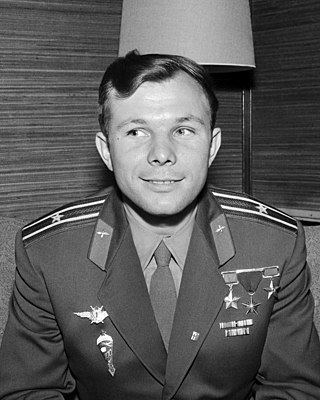 5
Yuri Alekseyevich Gagarin was a Soviet pilot and cosmonaut who, aboard the first successful crewed spaceflight, became the first human to journey into outer space. Travelling on Vostok 1, Gagarin...
5
Yuri Alekseyevich Gagarin was a Soviet pilot and cosmonaut who, aboard the first successful crewed spaceflight, became the first human to journey into outer space. Travelling on Vostok 1, Gagarin...
Adomas Jakštas
 4
Aleksandras Dambrauskas – Adomas Jakštas – Lietuvos filosofas, teologas neotomistas, kritikas, esperantininkas, matematikas, poetas, prelatas.
4
Aleksandras Dambrauskas – Adomas Jakštas – Lietuvos filosofas, teologas neotomistas, kritikas, esperantininkas, matematikas, poetas, prelatas.
Algirdas Julien Greimas
 4
Algirdas Julien Greimas was a Lithuanian literary scientist who wrote most of his body of work in French while living in France. Greimas is known among other things for the Greimas Square. He is,...
4
Algirdas Julien Greimas was a Lithuanian literary scientist who wrote most of his body of work in French while living in France. Greimas is known among other things for the Greimas Square. He is,...
Kipras Petrauskas
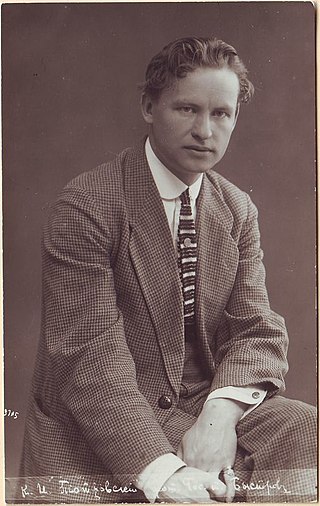 4
Kipras Petrauskas was a Lithuanian and Soviet operatic tenor, professor, and Lithuanian Association of Artists member. The national opera foundation is associated with him. He was married to Elena...
4
Kipras Petrauskas was a Lithuanian and Soviet operatic tenor, professor, and Lithuanian Association of Artists member. The national opera foundation is associated with him. He was married to Elena...
Barbara Radziwiłł
 4
Barbara Radziwiłł was Queen of Poland and Grand Duchess of Lithuania as consort of Sigismund II Augustus, the last male monarch of the Jagiellon dynasty. Barbara, a great beauty and already widowed,...
4
Barbara Radziwiłł was Queen of Poland and Grand Duchess of Lithuania as consort of Sigismund II Augustus, the last male monarch of the Jagiellon dynasty. Barbara, a great beauty and already widowed,...
Abraomas Kulvietis
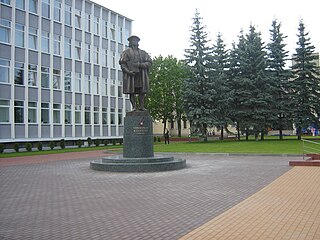 4
Abraomas Kulvietis was a Lithuanian jurist and a professor at Königsberg Albertina University, as well as a reformer of the church.
4
Abraomas Kulvietis was a Lithuanian jurist and a professor at Königsberg Albertina University, as well as a reformer of the church.
Emilia Plater
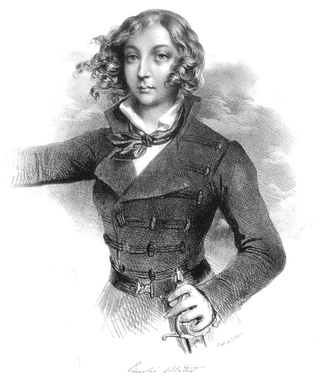 4
Countess Emilia Broel-Plater was a Polish–Lithuanian noblewoman and revolutionary from the lands of the partitioned Polish–Lithuanian Commonwealth. Raised in a patriotic tradition in Līksna near...
4
Countess Emilia Broel-Plater was a Polish–Lithuanian noblewoman and revolutionary from the lands of the partitioned Polish–Lithuanian Commonwealth. Raised in a patriotic tradition in Līksna near...
Mykolas Krupavičius
 4
Mykolas Krupavičius was a Lithuanian priest and politician. He is best known for his involvement with the land reform in the interwar Lithuania.
4
Mykolas Krupavičius was a Lithuanian priest and politician. He is best known for his involvement with the land reform in the interwar Lithuania.
Jurgis Savickis
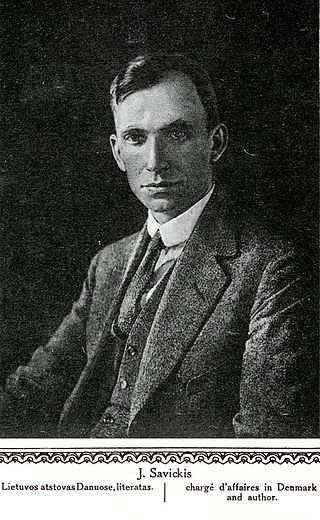 4
Jurgis Savickis was a Lithuanian short story writer and diplomat representing interwar Lithuania mostly in the Scandinavian countries.
4
Jurgis Savickis was a Lithuanian short story writer and diplomat representing interwar Lithuania mostly in the Scandinavian countries.
Konstantinas Sirvydas
 4
Konstantinas Sirvydas was a Lithuanian religious preacher, lexicographer, and one of the pioneers of Lithuanian literature from the Grand Duchy of Lithuania, at the time a confederal part of the...
4
Konstantinas Sirvydas was a Lithuanian religious preacher, lexicographer, and one of the pioneers of Lithuanian literature from the Grand Duchy of Lithuania, at the time a confederal part of the...
Vincas Svirskis
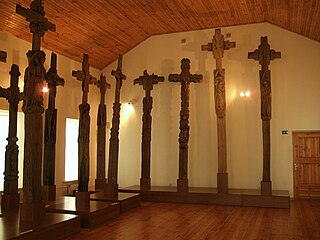 4
Vincas Svirskis was the most prominent Lithuanian folk sculptor and wood carver, known for his works in Lithuanian cross crafting, god-carving and roofed pole carving.
4
Vincas Svirskis was the most prominent Lithuanian folk sculptor and wood carver, known for his works in Lithuanian cross crafting, god-carving and roofed pole carving.
Stasys Šimkus
 4
Stasys Šimkus was a Lithuanian composer.
4
Stasys Šimkus was a Lithuanian composer.
Juozas Naujalis
 4
Juozas Naujalis was a Lithuanian composer, organist and choir conductor. He is acclaimed as Lithuanian music patriarch.
4
Juozas Naujalis was a Lithuanian composer, organist and choir conductor. He is acclaimed as Lithuanian music patriarch.
Jan Rustem
 4
Jan Rustem was a painter of Armenian ethnicity who lived and worked in the territories of the Polish–Lithuanian Commonwealth. Primarily a portrait painter, he was commissioned to execute portraits of...
4
Jan Rustem was a painter of Armenian ethnicity who lived and worked in the territories of the Polish–Lithuanian Commonwealth. Primarily a portrait painter, he was commissioned to execute portraits of...
Petras Klimas
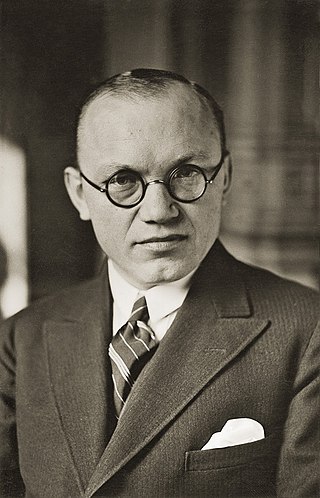 4
Petras Klimas was a Lithuanian diplomat, author, historian, and one of the twenty signatories of the Act of Independence of Lithuania.
4
Petras Klimas was a Lithuanian diplomat, author, historian, and one of the twenty signatories of the Act of Independence of Lithuania.
Juozas Ambrazevičius
 4
Juozas Ambrazevičius or Juozas Brazaitis, was a Nazi collaborator and Lithuanian literary historian who became prime minister when the Nazis routed the Soviets from Lithuania. His own ideology and...
4
Juozas Ambrazevičius or Juozas Brazaitis, was a Nazi collaborator and Lithuanian literary historian who became prime minister when the Nazis routed the Soviets from Lithuania. His own ideology and...
Jonas Totoraitis
 4
Jonas Totoraitis was a Roman Catholic priest and historian.
4
Jonas Totoraitis was a Roman Catholic priest and historian.
Jonas Šimkus (1906)
 4
Jonas Šimkus – Lietuvos rašytojas, žurnalistas, redaktorius.
4
Jonas Šimkus – Lietuvos rašytojas, žurnalistas, redaktorius.
Ludwig Rhesa
 3
Martin Ludwig Jedemin Rhesa was a Lutheran pastor and a professor at the University of Königsberg in East Prussia. He is best remembered as publisher of Lithuanian texts. He was the last prominent...
3
Martin Ludwig Jedemin Rhesa was a Lutheran pastor and a professor at the University of Königsberg in East Prussia. He is best remembered as publisher of Lithuanian texts. He was the last prominent...
Vytautas Mačernis
 3
Vytautas Mačernis was a Lithuanian poet.
3
Vytautas Mačernis was a Lithuanian poet.
Petras Avižonis
 3
Petras Avižonis was a Lithuanian ophthalmologist, rector of the University of Lithuania (1925–1926) and a political figure.
3
Petras Avižonis was a Lithuanian ophthalmologist, rector of the University of Lithuania (1925–1926) and a political figure.
Gabrielė Petkevičaitė-Bitė
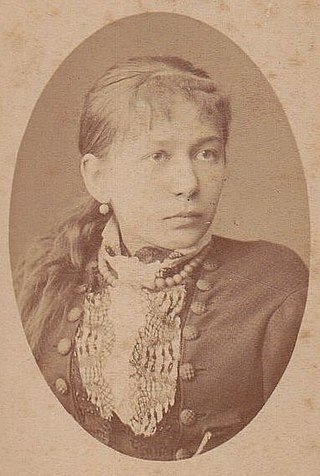 3
Gabrielė Petkevičaitė was a Lithuanian educator, writer, and activist. Her pen name Bitė (Bee) eventually became part of her last name. Encouraged by Povilas Višinskis, she joined public life and...
3
Gabrielė Petkevičaitė was a Lithuanian educator, writer, and activist. Her pen name Bitė (Bee) eventually became part of her last name. Encouraged by Povilas Višinskis, she joined public life and...
Immanuel Kant
 3
Immanuel Kant was a German philosopher and one of the central Enlightenment thinkers. Born in Königsberg, Kant's comprehensive and systematic works in epistemology, metaphysics, ethics, and...
3
Immanuel Kant was a German philosopher and one of the central Enlightenment thinkers. Born in Königsberg, Kant's comprehensive and systematic works in epistemology, metaphysics, ethics, and...
Tadas Ivanauskas
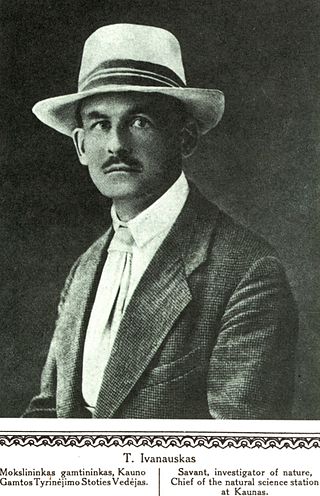 3
Tadas Ivanauskas was a Lithuanian zoologist and biologist, and one of the founders of Vytautas Magnus University.
3
Tadas Ivanauskas was a Lithuanian zoologist and biologist, and one of the founders of Vytautas Magnus University.
Antanas Maceina
 3
Antanas Maceina was a Lithuanian philosopher, existentialist, educator, theologian, and poet.
3
Antanas Maceina was a Lithuanian philosopher, existentialist, educator, theologian, and poet.
Antanas Salys
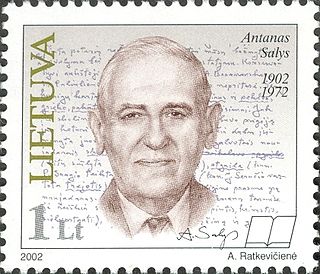 3
Antanas Salys – lietuvių kalbininkas, eksperimentinės fonetikos pradininkas Lietuvoje. Sudarė detalią lietuvių kalbos tarmių klasifikaciją ir parengė pirmąjį lietuvių kalbos tarmių žemėlapį.
3
Antanas Salys – lietuvių kalbininkas, eksperimentinės fonetikos pradininkas Lietuvoje. Sudarė detalią lietuvių kalbos tarmių klasifikaciją ir parengė pirmąjį lietuvių kalbos tarmių žemėlapį.
Justinas Staugaitis
 3
Justinas Staugaitis was a Lithuanian Roman Catholic bishop, politician, educator, and author. He was one of the twenty signatories to the Act of Independence of Lithuania.
3
Justinas Staugaitis was a Lithuanian Roman Catholic bishop, politician, educator, and author. He was one of the twenty signatories to the Act of Independence of Lithuania.
Stephen Báthory
 3
Stephen Báthory was Voivode of Transylvania (1571–1576), Prince of Transylvania (1576–1586), King of Poland and Grand Duke of Lithuania (1576–1586).
3
Stephen Báthory was Voivode of Transylvania (1571–1576), Prince of Transylvania (1576–1586), King of Poland and Grand Duke of Lithuania (1576–1586).
Stasys Raštikis
 3
Stasys Raštikis was a Lithuanian military officer, ultimately obtaining the rank of divisional general. He was the commander of the Lithuanian Army from September 21, 1934, to April 23, 1940.
3
Stasys Raštikis was a Lithuanian military officer, ultimately obtaining the rank of divisional general. He was the commander of the Lithuanian Army from September 21, 1934, to April 23, 1940.
Bronius Krivickas
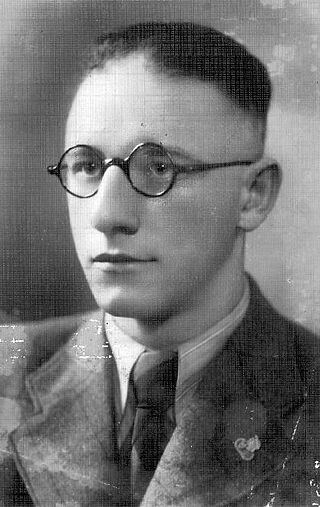 3
Bronius Krivickas was a Lithuanian writer, poet, literary critic, and anti-Soviet partisan. His work is mainly characterized by satire and literary criticism against the occupying Soviet state. Among...
3
Bronius Krivickas was a Lithuanian writer, poet, literary critic, and anti-Soviet partisan. His work is mainly characterized by satire and literary criticism against the occupying Soviet state. Among...
Jan Karol Chodkiewicz
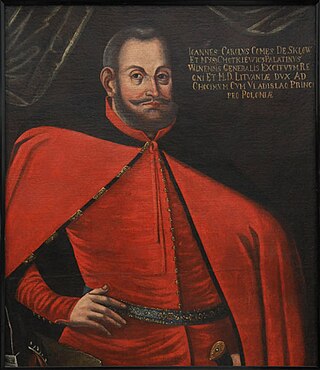 3
Jan Karol Chodkiewicz was a military commander of the Grand Ducal Lithuanian Army, who was from 1601 Field Hetman of Lithuania, and from 1605 Grand Hetman of Lithuania. He was one of the most...
3
Jan Karol Chodkiewicz was a military commander of the Grand Ducal Lithuanian Army, who was from 1601 Field Hetman of Lithuania, and from 1605 Grand Hetman of Lithuania. He was one of the most...
Antanas Tatarė
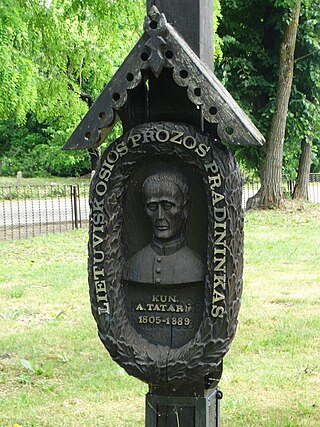 3
Antanas Tatarė – lietuvių prozininkas, pedagogas, Romos katalikų dvasininkas; pirmasis žymus Užnemunės rašytojas, švietėjas.
3
Antanas Tatarė – lietuvių prozininkas, pedagogas, Romos katalikų dvasininkas; pirmasis žymus Užnemunės rašytojas, švietėjas.
Stasys Lozoraitis Jr.
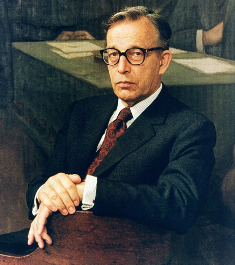 3
Stasys Lozoraitis Jr. was a Lithuanian diplomat and politician who served as the Head of the Lithuanian Diplomatic Service from 1987 to 1991, Chief Diplomat to the United States 1991 to 1993 and...
3
Stasys Lozoraitis Jr. was a Lithuanian diplomat and politician who served as the Head of the Lithuanian Diplomatic Service from 1987 to 1991, Chief Diplomat to the United States 1991 to 1993 and...
Jonas Bretkūnas
 3
Jonas Bretkūnas, Johann(es) Bretke, also known as Bretkus (born 1536 in Bammeln near Friedland – 1602 Königsberg was a Lutheran pastor and was one of the best known developers of the written...
3
Jonas Bretkūnas, Johann(es) Bretke, also known as Bretkus (born 1536 in Bammeln near Friedland – 1602 Königsberg was a Lutheran pastor and was one of the best known developers of the written...
Artūras Sakalauskas
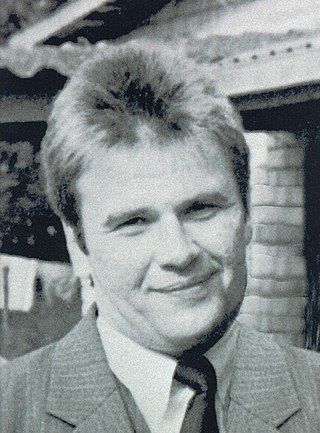 3
Artūras Sakalauskas – Lietuvos kariuomenės Alytaus rinktinės savanoris, žuvęs Lietuvos Respublikos Seimo rūmų prieigose, stabdant Sovietų armijos išpuolį, baigiantis kariniam pučui Maskvoje....
3
Artūras Sakalauskas – Lietuvos kariuomenės Alytaus rinktinės savanoris, žuvęs Lietuvos Respublikos Seimo rūmų prieigose, stabdant Sovietų armijos išpuolį, baigiantis kariniam pučui Maskvoje....
Pranas Dovydaitis
 3
Pranas Dovydaitis was a Lithuanian politician, Prime Minister of Lithuania, teacher, encyclopedist, editor, and professor.
3
Pranas Dovydaitis was a Lithuanian politician, Prime Minister of Lithuania, teacher, encyclopedist, editor, and professor.
Jonas Kriščiūnas
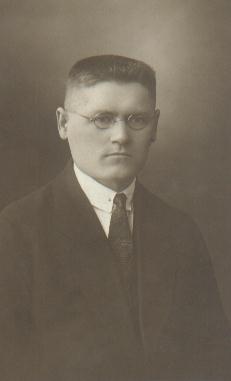 3
Jonas Kriščiūnas – Lietuvos agronomas, bitininkas, politinis bei visuomenės veikėjas.
3
Jonas Kriščiūnas – Lietuvos agronomas, bitininkas, politinis bei visuomenės veikėjas.
Jonas Aistis
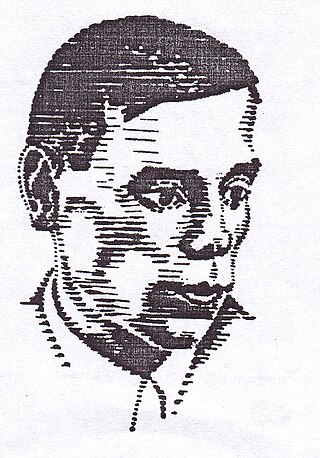 3
Jonas Aistis-Aleksandravičius – lietuvių lyrikas, eseistas.
3
Jonas Aistis-Aleksandravičius – lietuvių lyrikas, eseistas.
Justinas Vienožinskis
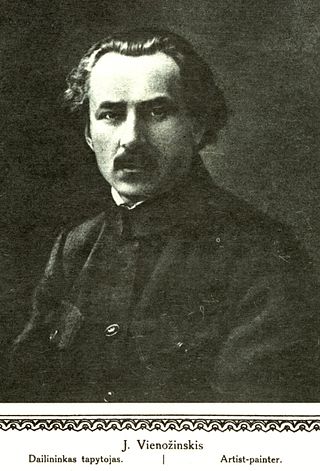 3
Justinas Vienožinskis – Lietuvos dailininkas tapytojas, dailėtyrininkas.
3
Justinas Vienožinskis – Lietuvos dailininkas tapytojas, dailėtyrininkas.
Kazys Binkis
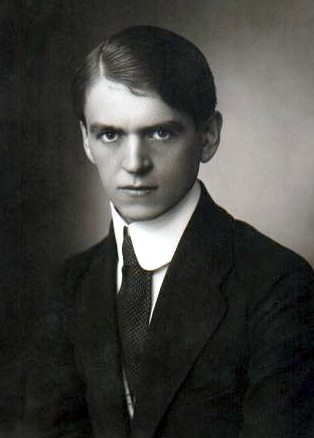 3
Kazys Binkis was a Lithuanian poet, journalist, and playwright.
3
Kazys Binkis was a Lithuanian poet, journalist, and playwright.
Pranas Jodelė
 3
Pranas Jodelė – žymiausias nepriklausomos Lietuvos chemikas technologas, profesorius, VDU rektorius.
3
Pranas Jodelė – žymiausias nepriklausomos Lietuvos chemikas technologas, profesorius, VDU rektorius.
Pranas Eimutis
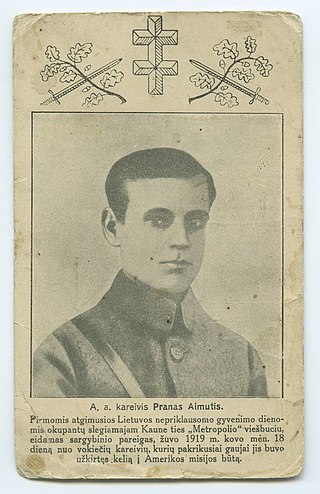 3
Pranas Eimutis – Lietuvos karys savanoris.
3
Pranas Eimutis – Lietuvos karys savanoris.
Antanas Mackevičius
 3
Antanas Mackevičius was a Lithuanian Roman Catholic priest who was one of the leaders and initiators of the January Uprising in Lithuania.[a]
3
Antanas Mackevičius was a Lithuanian Roman Catholic priest who was one of the leaders and initiators of the January Uprising in Lithuania.[a]
Adolfas Jucys
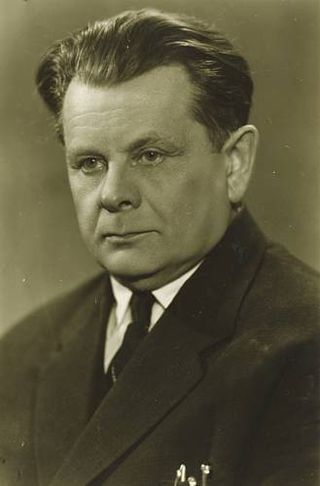 3
Adolfas Pranaitis Jucys was a Lithuanian theoretical physicist and mathematician, and inducted member of the Lithuanian Academy of Sciences in 1953. He graduated from Kaunas University in 1931 and...
3
Adolfas Pranaitis Jucys was a Lithuanian theoretical physicist and mathematician, and inducted member of the Lithuanian Academy of Sciences in 1953. He graduated from Kaunas University in 1931 and...
Ieva Labutytė
 3
Ieva (Eva) Erika Labutytė-Vanagienė – Lietuvos dailininkė grafikė, Mažosios Lietuvos kraštotyrininkė.
3
Ieva (Eva) Erika Labutytė-Vanagienė – Lietuvos dailininkė grafikė, Mažosios Lietuvos kraštotyrininkė.
Antanas Vienažindys
 3
Antanas Vienažindys (1841–1892), also known by his pen name Vienužis, was a Lithuanian Roman Catholic priest and poet. While only a handful of his poems survive, he is considered the most famous...
3
Antanas Vienažindys (1841–1892), also known by his pen name Vienužis, was a Lithuanian Roman Catholic priest and poet. While only a handful of his poems survive, he is considered the most famous...
Petras Kriaučiūnas
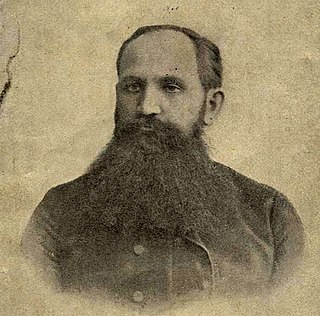 3
Petras Kriaučiūnas (1850–1916) was an activist during the Lithuanian National Revival. Educated as a priest, he taught at the Marijampolė Gymnasium in 1881–1887 and 1906–1914 and was active as an...
3
Petras Kriaučiūnas (1850–1916) was an activist during the Lithuanian National Revival. Educated as a priest, he taught at the Marijampolė Gymnasium in 1881–1887 and 1906–1914 and was active as an...
Petras Rimša
 3
Petras Rimša was one of the first professional Lithuanian sculptors and medalists.
3
Petras Rimša was one of the first professional Lithuanian sculptors and medalists.
Antanas Žmuidzinavičius
 3
Antanas Žmuidzinavičius was a Lithuanian painter and art collector.
3
Antanas Žmuidzinavičius was a Lithuanian painter and art collector.
Vincentas Borisevičius
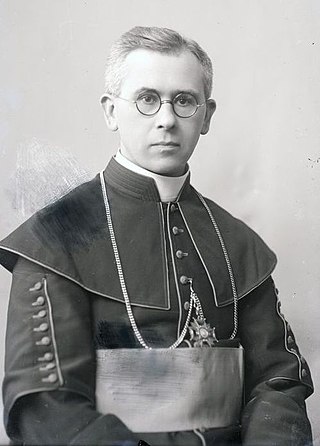 3
Vincentas Borisevičius was a Lithuanian Roman Catholic bishop of the Telšiai Diocese. The process of his beatification was initiated in 1990.
3
Vincentas Borisevičius was a Lithuanian Roman Catholic bishop of the Telšiai Diocese. The process of his beatification was initiated in 1990.
Vladas Nagevičius
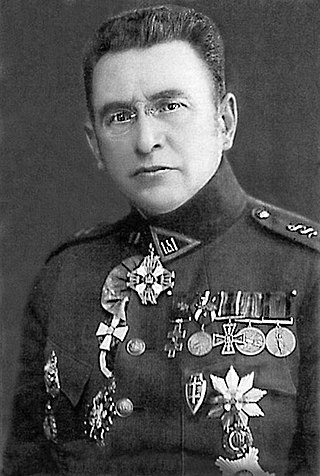 3
Vladas Nagevičius-Nagius was a Lithuanian brigadier general, physician, archaeologist, museologist. He is the founder of the Vytautas the Great War Museum.
3
Vladas Nagevičius-Nagius was a Lithuanian brigadier general, physician, archaeologist, museologist. He is the founder of the Vytautas the Great War Museum.
Kazimieras Naruševičius
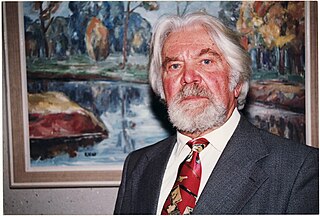 3
Kazimieras Naruševičius – Lietuvos dailininkas tapytojas, pedagogas.
3
Kazimieras Naruševičius – Lietuvos dailininkas tapytojas, pedagogas.
Ana Krepštul
 3
Ana Krepštul – dailininkė.
3
Ana Krepštul – dailininkė.
Juozas Zdebskis
 3
Juozas Zdebskis – kunigas, vienas žymiausių XX a. pokario disidentų ir kovotojų už tikinčiųjų teises.
3
Juozas Zdebskis – kunigas, vienas žymiausių XX a. pokario disidentų ir kovotojų už tikinčiųjų teises.
Sigismund II Augustus
 3
Sigismund II Augustus was King of Poland and Grand Duke of Lithuania, the son of Sigismund I the Old, whom Sigismund II succeeded in 1548. He was the first ruler of the Polish–Lithuanian Commonwealth...
3
Sigismund II Augustus was King of Poland and Grand Duke of Lithuania, the son of Sigismund I the Old, whom Sigismund II succeeded in 1548. He was the first ruler of the Polish–Lithuanian Commonwealth...
Morta of Lithuania
 3
Morta was Queen of Lithuania (1253–1262) upon the accession of her husband, King Mindaugas. Very little is known about her life. Probably, Morta was Mindaugas' second wife as Vaišvilkas, the eldest...
3
Morta was Queen of Lithuania (1253–1262) upon the accession of her husband, King Mindaugas. Very little is known about her life. Probably, Morta was Mindaugas' second wife as Vaišvilkas, the eldest...
Vytautas Statulevičius
 3
Vytautas Statulevičius – Lietuvos mokslininkas, habilituotas matematikos mokslų daktaras, akademikas.
3
Vytautas Statulevičius – Lietuvos mokslininkas, habilituotas matematikos mokslų daktaras, akademikas.
Silvestras Žukauskas
 3
Silvestras Žukauskas was a Lithuanian General. He first served in the Imperial Russian Army, where he distinguished himself during World War I, rising to the rank of major general and ending the war...
3
Silvestras Žukauskas was a Lithuanian General. He first served in the Imperial Russian Army, where he distinguished himself during World War I, rising to the rank of major general and ending the war...
Matas Slančiauskas
 3
Matas Jonas Slančiauskas – knygnešys, lietuvių visuomenės veikėjas, aušrininkas, knygnešys, publicistas, tautosakos rinkėjas.
3
Matas Jonas Slančiauskas – knygnešys, lietuvių visuomenės veikėjas, aušrininkas, knygnešys, publicistas, tautosakos rinkėjas.